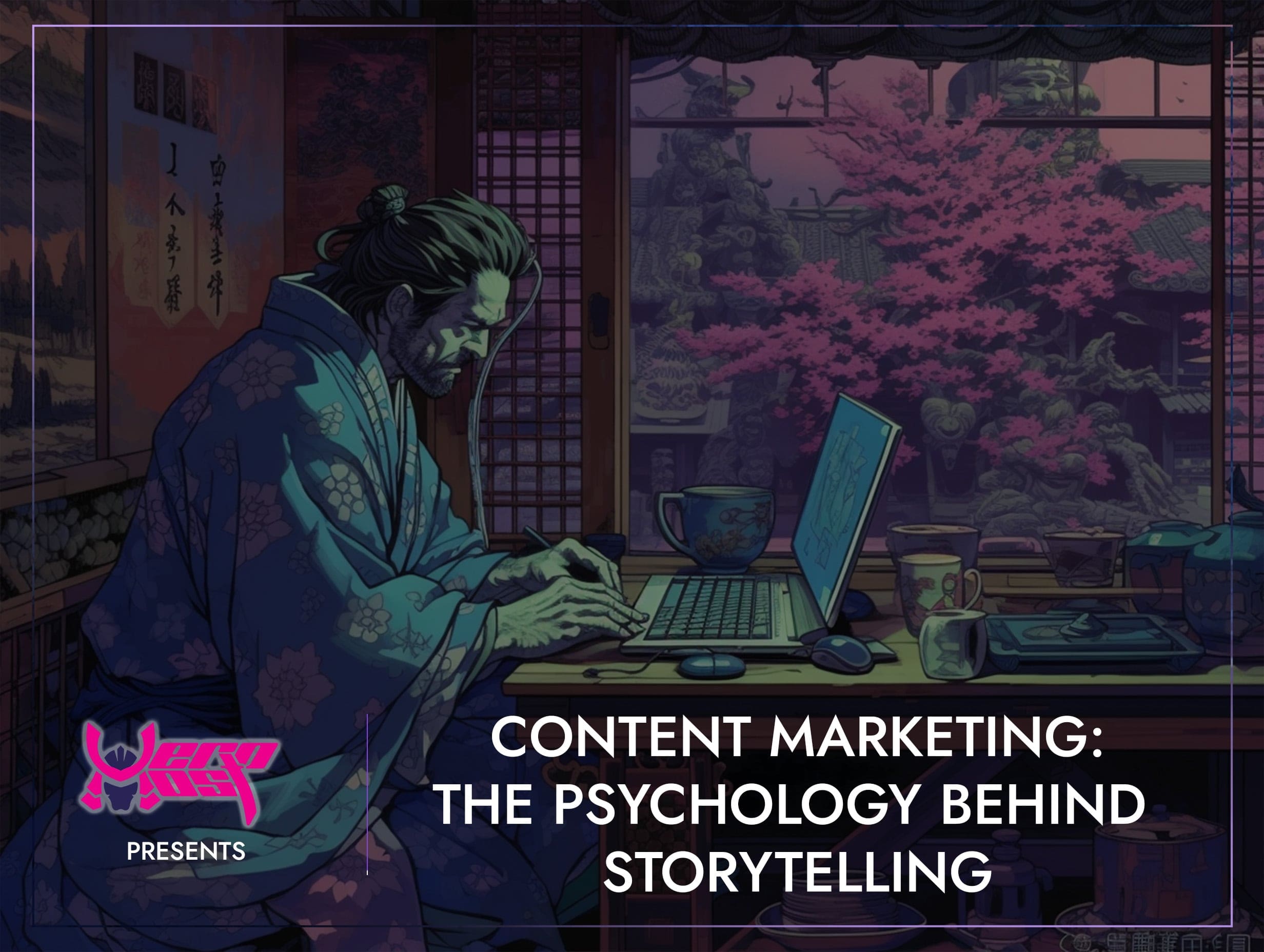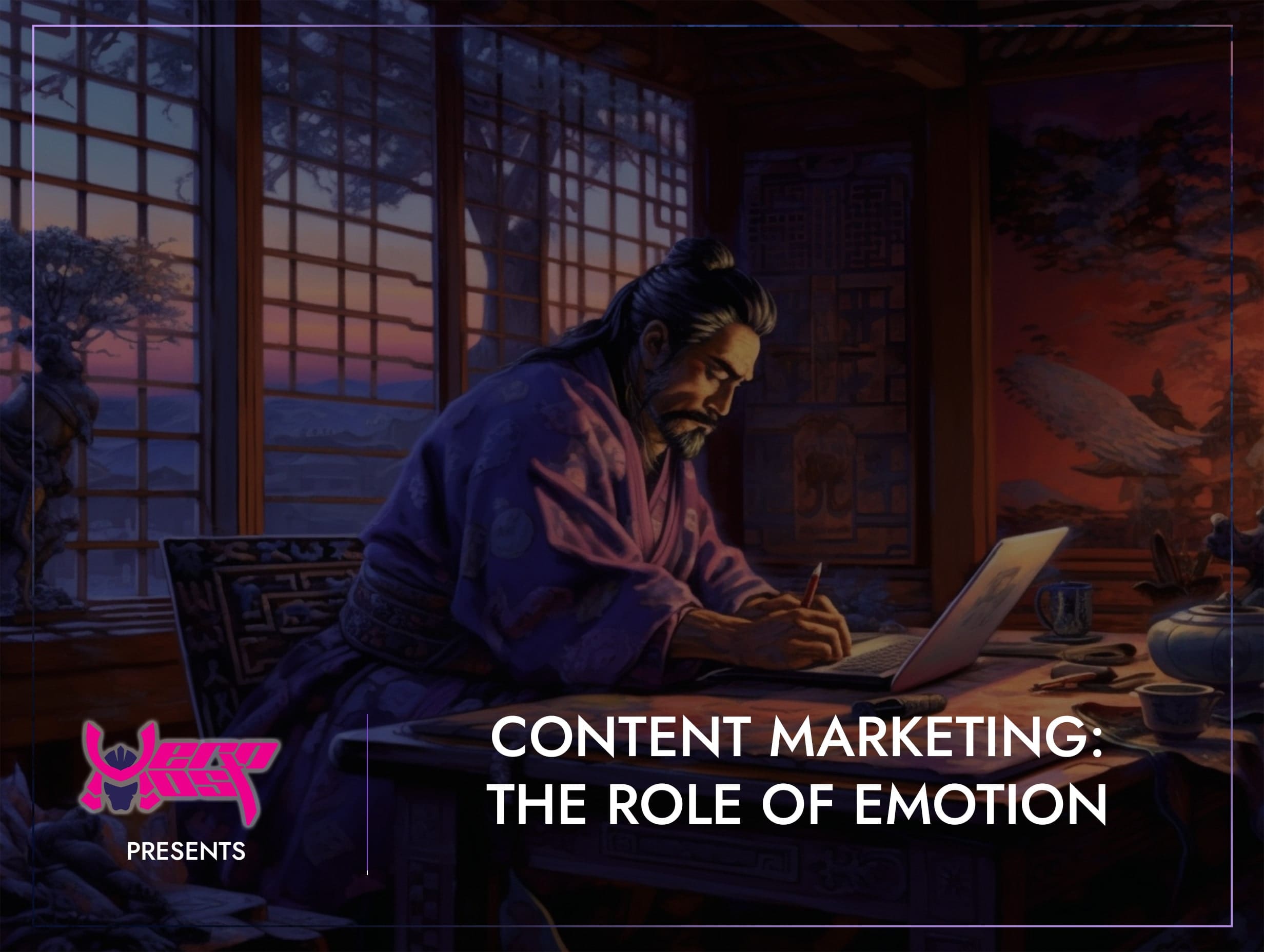Content Marketing: The Psychology Behind Storytelling
- Home
- Content Marketing
- Content Marketing: The Psychology Behind Storytelling

- Mikey Ryu
- April 24, 2024
- 0
Content Marketing: The Psychology Behind Storytelling
Stories have been an integral part of human culture since time immemorial. From ancient myths and legends to modern-day novels and movies, storytelling is a universal language that transcends boundaries and connects people across time and space. But why do stories matter? What is it about storytelling that captivates our minds and touches our hearts? In this blog, we’ll explore the psychology behind storytelling, unravelling the mysteries of why stories matter and how they shape our perceptions, emotions, and behaviour.
The Power of Narrative
At its core, storytelling is about making sense of the world around us. Through narratives, we organise our experiences, impart meaning to our lives, and share our beliefs and values with others. Stories provide context, structure, and coherence to the chaos of existence, allowing us to navigate the complexities of human existence.
From a psychological perspective, storytelling engages multiple cognitive processes, including perception, memory, and empathy. When we hear a story, our brains become active, processing the information, filling in gaps, and making connections. This cognitive engagement makes stories more memorable and impactful than mere facts or data.
Emotional Connection
One of the most potent aspects of storytelling is its ability to evoke emotion. Stories have the power to elicit a wide range of emotions, from joy and excitement to sadness and fear. This emotional resonance is what makes stories so compelling and memorable.
Neuroscientific research has shown that when we hear a story, our brains release neurotransmitters like oxytocin and dopamine, which are associated with feelings of trust, empathy, and pleasure. These neurochemicals not only enhance our emotional engagement with the story but also strengthen our connection to the storyteller and the message they’re conveying.
The Psychology of Identification
Another key aspect of storytelling is identification—the process by which we see ourselves in the characters and situations depicted in a story. When we identify with a protagonist or empathize with their struggles, we’re more likely to become emotionally invested in the narrative and internalize its messages.
Psychologist Carl Jung proposed the concept of the “collective unconscious,” suggesting that certain archetypal characters and themes resonate with universal human experiences. These archetypes, such as the hero, the mentor, and the villain, tap into deep-seated psychological patterns and symbols that transcend cultural boundaries and resonate across generations.
The Impact of Persuasion
Storytelling is also a powerful tool for persuasion. By framing information within a narrative context, storytellers can influence beliefs, attitudes, and behaviours. Research has shown that narratives are more persuasive than logical arguments alone because they engage both the rational and emotional centres of the brain.
Moreover, stories can bypass our natural scepticism and resistance to persuasion. When we’re engrossed in a compelling narrative, our critical faculties are temporarily suspended, allowing the storyteller to weave their message into the fabric of our subconscious minds.
Empathy and Social Connection
Perhaps the most profound impact of storytelling is its ability to foster empathy and social connection. When we immerse ourselves in the lives of fictional characters, we expand our capacity for empathy and understanding. By walking in someone else’s shoes, even if only in our imaginations, we gain insight into different perspectives and experiences.
This empathic connection extends beyond the realm of fiction; it influences how we relate to real people in our lives. When we hear someone else’s story, we’re more likely to empathize with their struggles, validate their emotions, and offer support and compassion.
Conclusion
In conclusion, storytelling is more than just entertainment; it’s a fundamental aspect of the human experience. By engaging our minds and touching our hearts, stories shape our perceptions, emotions, and behaviour in profound ways. From evoking empathy and fostering a social connection to influencing beliefs and behaviours, the psychology behind storytelling is a testament to the enduring power of narrative in our lives. So the next time you find yourself captivated by a story, remember that there’s more to it than meets the eye—it’s tapping into the deepest recesses of your mind and soul, shaping the way you see yourself and the world around you.
Search
Categorys
- Branding (12)
- Business Growth Guides (3)
- Business Insights (3)
- Content Marketing (43)
- Domain Authority (19)
- Email Marketing (28)
- Google Analytics & Search Console (5)
- Hack or Not (2)
- Hero Host News (0)
- Inbound Marketing (32)
- Lessons From Asia (40)
- Marketing Guides (11)
- Martial Arts Journey (14)
- Outbound Marketing (8)
- Search Engine Optimisation (SEO) (41)
- Social Media Marketing (38)
- Web Design (20)
- Website Hosting (4)
- Wordpress (2)






